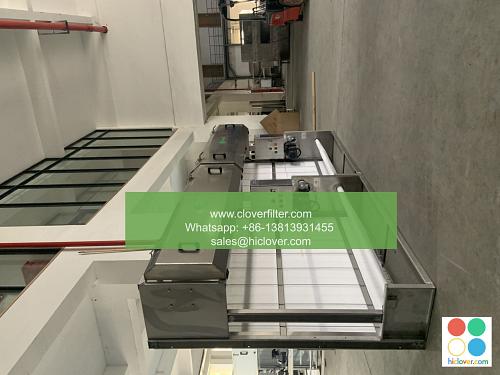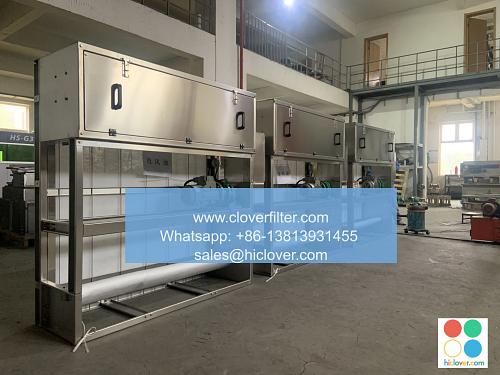The Importance of Air Filter Component Maintenance for Data Centers

As the reliance on data centers continues to grow, with the global data center market expected to reach $174.65 billion by 2025, driven by the increasing demand for cloud computing, big data analytics, and IoT devices, ensuring the optimal performance and efficiency of these facilities has become paramount. One crucial aspect that significantly impacts the overall health and reliability of data centers is the maintenance of air filter components. In this article, we will delve into the importance of air filter maintenance for data centers, exploring its implications on data center infrastructure management, energy efficiency, and business continuity.
Role of Air Filters in Data Centers
Air filters play a critical role in maintaining the health and efficiency of data centers. Their primary function is to remove airborne contaminants such as dust, pollen, and other particles that could potentially damage sensitive IT equipment and compromise the integrity of the data center environment. By ensuring that the air quality within the data center is maintained at optimal levels, air filters directly contribute to the reliability and up-time of the facility.
Consequences of Neglecting Air Filter Maintenance
Neglecting the maintenance of air filter components can have severe consequences for data centers. Dirty or clogged air filters can lead to increased energy consumption as the system works harder to push air through the filters, resulting in higher operational costs. Furthermore, the buildup of contaminants can cause equipment overheating, leading to premature failure of critical components, downtime, and potentially catastrophic data loss. In a sector where high availability and continuous operations are imperative, such failures can have significant financial and reputational consequences.
Best Practices for Air Filter Component Maintenance
To mitigate these risks, data center operators must adopt a proactive approach to air filter maintenance. This includes:
- Regular Inspection: Scheduling periodic inspections of air filters to identify signs of wear or contamination.
- Timely Replacement: Replacing air filters according to the manufacturer’s recommendations or sooner if indicated by inspection.
- Upgrading Filter Technology: Considering the adoption of high-efficiency particulate air (HEPA) filters or ultra-low particulate air (ULPA) filters for enhanced protection against finer particles.
- Training Personnel: Ensuring that maintenance staff is adequately trained in the proper procedures for handling, inspecting, and replacing air filters to minimize downtime and prevent human error.
Integration with Data Center Infrastructure Management (DCIM)
The maintenance of air filter components should be integrated into broader data center infrastructure management (DCIM) strategies. DCIM tools can provide real-time monitoring of environmental conditions within the data center, including temperature, humidity, and air quality. By leveraging these insights, data center operators can optimize their maintenance schedules, predict potential issues before they occur, and ensure that the data center operates within optimal thermal envelopes and air quality standards.
Conclusion
In conclusion, the maintenance of air filter components is a critical aspect of data center operations, directly impacting energy efficiency, equipment reliability, and ultimately, business continuity. As data centers continue to evolve and expand, driven by the increasing demand for cloud services, edge computing, and artificial intelligence (AI), the importance of robust air filter maintenance practices will only continue to grow. By prioritizing air filter maintenance and integrating it into comprehensive DCIM strategies, data center operators can ensure the long-term health, efficiency, and reliability of their facilities, safeguarding against potential failures and supporting the digital transformation of businesses worldwide.
Prompt


